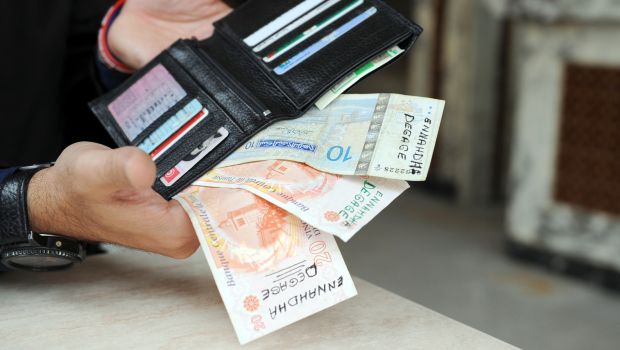
A Tunisian man shows Tunisian dinar bills bearing slogans calling for the Islamist Ennahda party to step down from power in his wallet at a cafe in the capital, Tunis, on November 15, 2013. (AFP PHOTO/FETHI BELAID)
Geneva, AP—The Swiss government said Wednesday it has decided to keep 760 million Swiss francs (858 million US dollars) in Egyptian and Tunisian assets frozen for three more years.
Switzerland’s seven-member Federal Council, which includes the president and other ministers, said the decision applies to the 700 million francs held by former President Hosni Mubarak and his aides and another 60 million francs that were linked to Tunisia’s former autocrat Zine El-Abidine Ben Ali.
The Council said in a statement that the “aim of this extension is to provide more time for criminal investigations in Tunisia and Egypt into the origin of these assets.”
And by granting the extension, the Council said, the Swiss government “is thereby taking account of the political transition in the two countries.”
It added that over the past three years there has been close cooperation between Swiss authorities and their counterparts in Tunisia and Egypt that has resulted in “significant progress” toward determining the origin of the assets so that the money can be returned eventually.
Under Swiss laws, other nations are generally required to provide information about possible criminal wrongdoing to start unblocking any frozen assets.
The money in such cases is usually locked up for three years, and during that time governments must meet Swiss requirements such as providing information of any financial crimes that could be prosecuted on Swiss soil.
